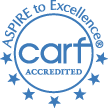Custodians & Other Providers
What is Residential Treatment for Children?
Residential treatment provides a safe, highly structured environment for children and adolescents experiencing severe behavioral, emotional, or mental health challenges. At Dakota Boys and Girls Ranch, our residential programs provide intensive, round-the-clock support for youth who need more specialized care than outpatient services can provide.
If you are a parent looking for help for your child,
contact us at 701-221-5323
We’ll help you determine if residential treatment is the right fit for your child and walk you through the entire process.
START MY CHILD'S CAREEligibility Criteria for Residential Treatment:
- North Dakota Residency: The child must be a current or intended resident of North Dakota.
- Age Range: Our residential programs are for children and adolescents ages 10 to 17.
- Need for Intensive Support: Residential treatment is best suited for children whose mental health needs are not fully met by outpatient care or who require a higher level of support.
Dakota Boys and Girls Ranch offers two levels of residential care to meet the varying needs of youth, both designed to provide intensive support in a secure setting:
| Psychiatric Residential Treatment Facilities (PRTF) | Qualified Residential Treatment Programs (QRTP) |
|---|---|
|
For children needing the highest level of care, this program offers a highly structured, intensive psychiatric environment, ideal for children who require continuous oversight.
Minot, Bismarck, and Fargo locations |
Our Qualified Residential Treatment Programs provide a safe and supportive living environment for children who can thrive with a lower level of structure and additional supportive services.
Minot location |
|
In addition, children in both PRTF and QRTP programs receive medical care, wellness and recreational services, and robust spiritual life programming. |
Specific Eligibility Criteria for PRTF:
To qualify for a Psychiatric Residential Treatment Facility, one of the following must have occurred in the last 90 days:
- The child has been admitted to the emergency room for a psychiatric condition or crisis.
- The child has been admitted to a psychiatric hospital.
- The child has been seen by a behavioral health clinician.
- A behavioral health clinician or doctor has assessed the child and determined that a referral for residential treatment is necessary.
|
Note: In North Dakota, a centralized admissions process determines the appropriate level of care for each child. QRTP is traditionally for youth in the foster care system, but the state does have limited Voluntary Treatment Program funds for private placements. |
What is My Responsibility as a Custodian?
- Complete Universal Application (SFN 824).
- Gather medical and school records.
- Complete Releases of Information.
- Submit LOC to Maximus.
- Inform the Ranch when a Maximus decision is made.
- If the LOC is approved, contact the Ranch to schedule an admit date.
- Upon admission, submit School District Notification Form (SFN 18119) to the North Dakota Department of Public Instruction.
Connect with our admissions team today.
Call 701-221-5323
We can help you determine if residential treatment is right for a child and walk you through the admissions process.
LEARN MORE ABOUT THE ADMISSIONS PROCESSADMISSIONS
1227 N. 35th St.
Bismarck, ND 58501
Phone: 701-221-5323
Fax: 701-551-6838
admissions@DakotaRanch.org

